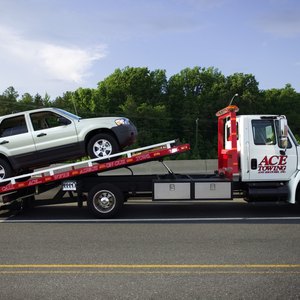
When you take out a loan, the bank puts a lot of trust in you. Without really knowing your or some of your financial habits, it lends money based on the hope that you'll keep your promise and pay it back. If you don't, the bank has many ways to get its money back from you. These tools include the ability to report that you didn't pay back your loan, making it hard for you to borrow from anyone else.
Credit Score Takes a Hit
When you miss a loan payment, your lender will report it to the credit bureaus. Typically, this happens when you become 30 days late. Having a late payment on your credit will probably make your score go down. If you have very good credit, it could easily drop by 100 points or more. This can make it harder, more expensive or both to get more credit in the future. While it will usually take seven years for the late payment to drop off your credit report, you can fix the problem and bring the loan up to good standing by making your missed payment.
You Face Collection Actions
Eventually, the bank will give up on your loan. When it does that, it usually turns your loan over to a collection agency. This does more damage to your credit report. In addition, while your bank was probably calling you and sending you letters, the collection agency may be even more aggressive in pursuing payment from you.
Collateral is Subject to Repossession
When your bank loan has collateral -- like a car loan that is backed by your car -- the bank can eventually seize the collateral. The time frame that the lender has to take the collateral varies based on your loan agreement and your state's laws. Unsecured loans, like student loans or credit cards, don't have any collateral, so the bank can't seize anything directly.
Judgments Go Against You
Eventually, either the lender or the collection agency may decide to sue you in court. If it is able to win its case and get a judgment entered in its favor, the court will get involved in helping it collect the debt. The court can make your employer divert wages to pay off the judgment, pull money out of your bank accounts or sell your property even if it wasn't pledged as collateral. If you don't comply with the court's requirements or show up when you're supposed to, it could even issue a warrant against you and potentially have you arrested.
Banks Can Tap Your Money
When you owe money to a bank where you also have a checking or savings account, it can seize that account. This power is referred to as the bank's right of set off, because it can use your money to offset the money that you got from the bank and didn't pay off. The right of setoff can put you in a tough situation, because the bank can simply grab your balance, making any checks that you have written against it bounce.
References
- MyFICO: What Are the Different Categories of Late Payments and How Does Your FICO Score Consider Late Payments?
- MyFICO: Credit Missteps -- How Their Effect on FICO Scores Vary
- Federal Trade Commission: Debt Collection
- Federal Trade Commission: Vehicle Repossession
- Consumer Financial Protection Bureau: Can a Collection Agency Try to Have Me Arrested Over a Debt Collection
Writer Bio
Steve Lander has been a writer since 1996, with experience in the fields of financial services, real estate and technology. His work has appeared in trade publications such as the "Minnesota Real Estate Journal" and "Minnesota Multi-Housing Association Advocate." Lander holds a Bachelor of Arts in political science from Columbia University.

